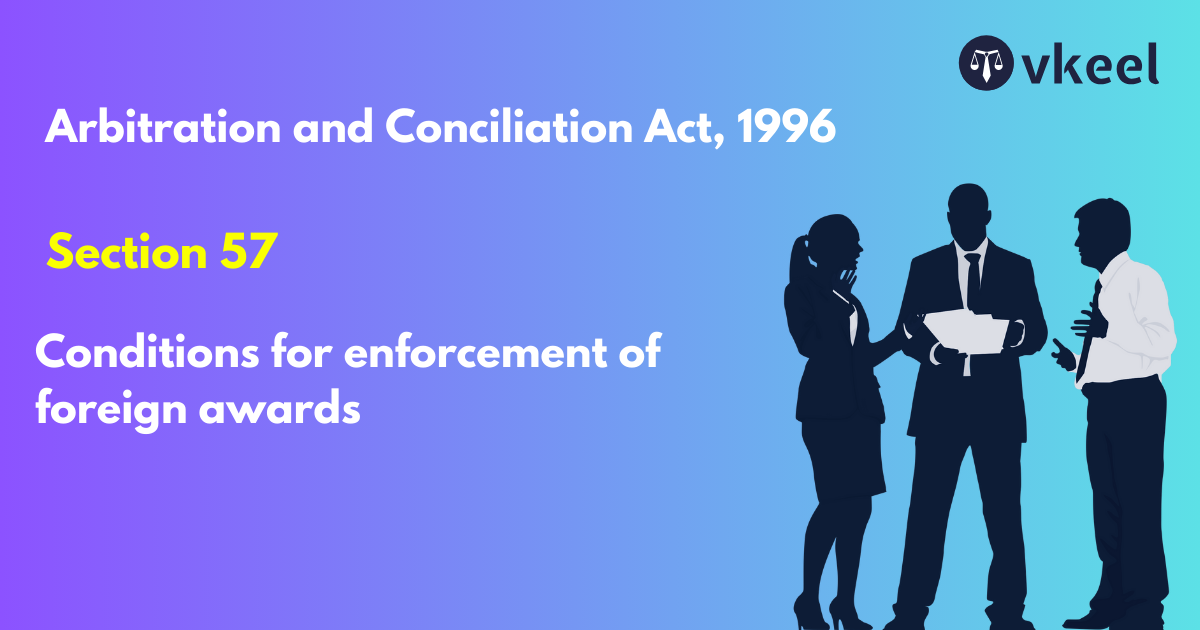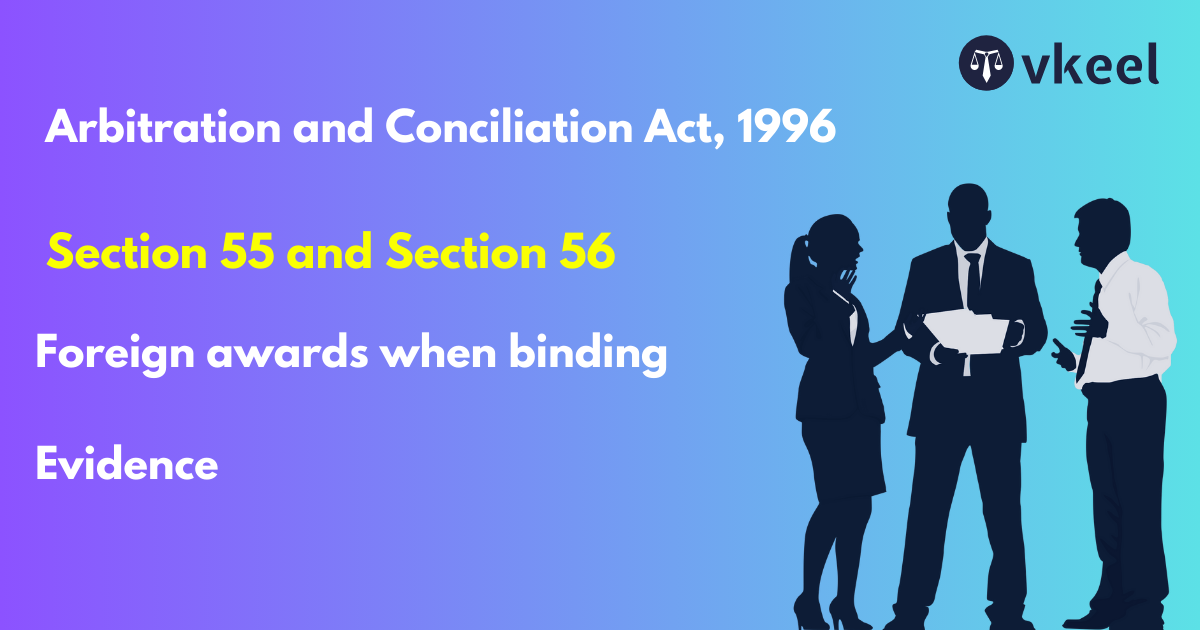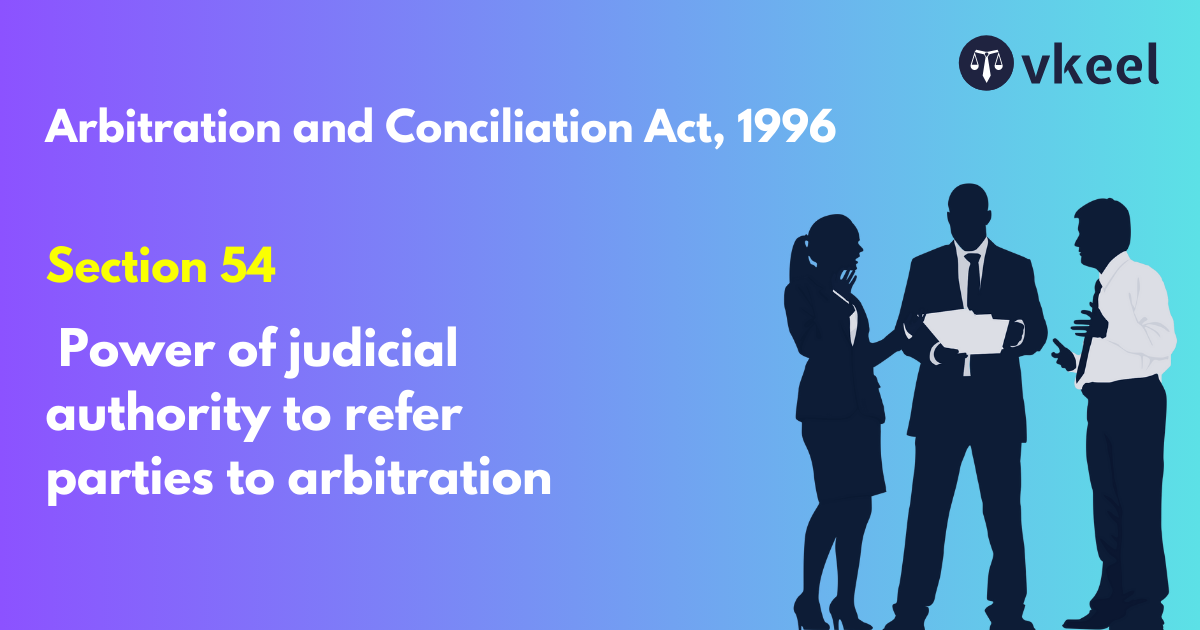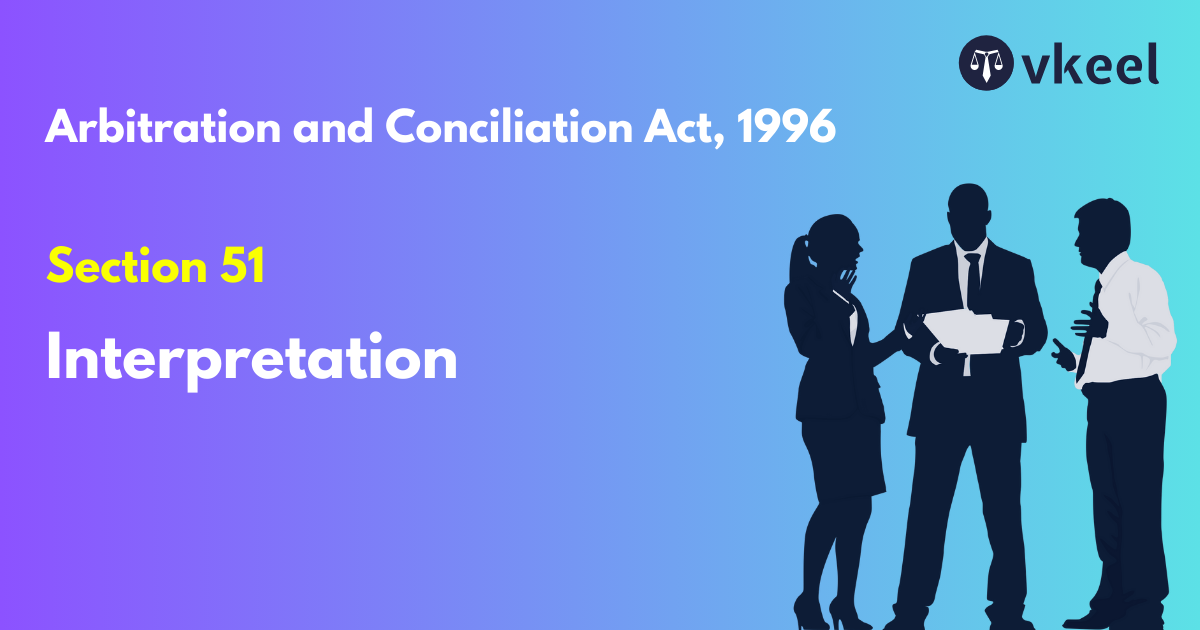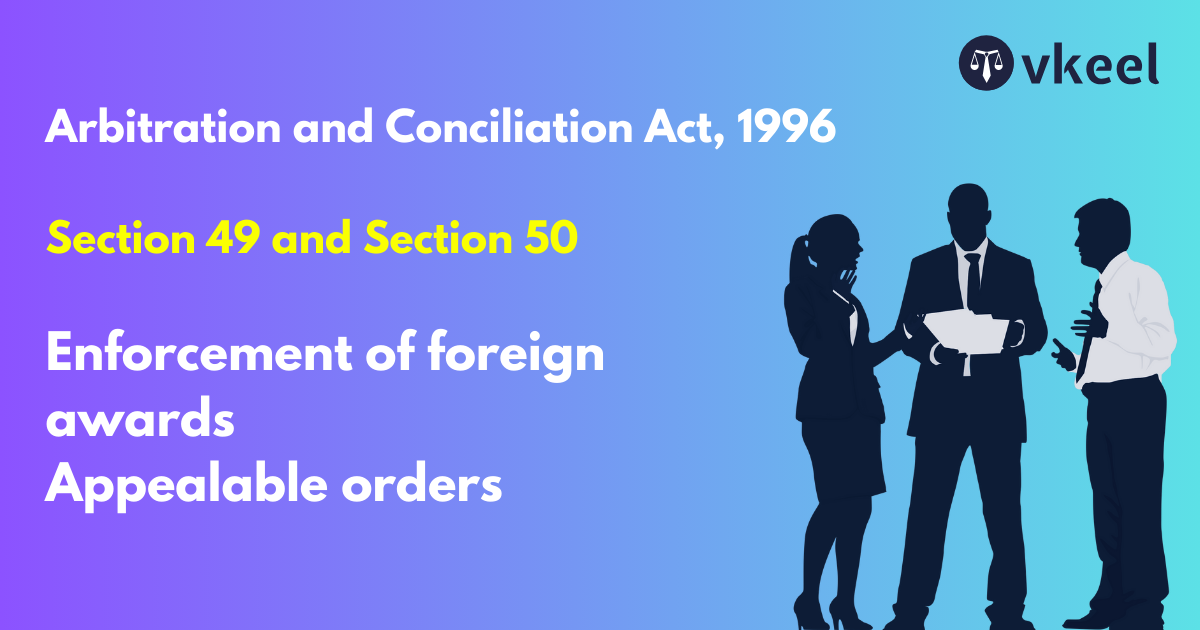Section 58 and Section 59: Arbitration and Conciliation Act, 1996
By Nivedita Dhiman
Table of Contents
Introduction
This section deals with the enforcement of certain foreign awards. The conditions for the enforcement of foreign awards are laid down in section 48. Section 48 enumerates the various grounds which vest authority in the court to refuse t enforce the foreign award at the request of the party against whom it is sought to be enforced.
Section 58 and Section 59 of Arbitration and conciliation act
Enforcement of foreign awards
Where the Court is satisfied that the foreign award is enforceable under this Chapter, the award shall be deemed to be a decree of the Court.
Appealable orders
(1) An appeal shall lie from the order refusing—
(a) to refer the parties to arbitration under section 54; and
(b) to enforce a foreign award under section 57, to the court authorised by law to hear appeals from such order.
(2) No second appeal shall lie from an order passed in appeal under this section, but nothing in this section shall affect or take away any right to appeal to the Supreme Court.
Landmark Judgements
Mury Exportation vs D Khaitan & Sons Ltd, 1956
The question which arises upon an application by a party for enforcement of a foreign award, namely, whether the matter is governed by the local arbitration act or this act is a question of law. The real position will not be affected by anything done or said by the party in any other proceedings.
Lochman Das Sat Lal vs Parmeshri Dass, 1958
Although Pakistan can be considered to be a party to the protocol on arbitration clause and Geneva convention qua other countries, which signed the same, it cannot be so considered, qua India. Therefore, an award made and signed at Karachi after the partition of India is not such an award which can be enforced under the provisions of the act.
Conclusion
Right to foreign awards is an indefeasible right in which court does not have any jurisdiction. Plaintiff by merely entering into other contracts with different parties cannot prejudice and defeat rights of different parties under different contracts.
Disclaimer:
The information provided in the article is for general informational purposes only, and is not intended to constitute legal advice or to be relied upon as a substitute for legal advice. Furthermore, any information contained in the article is not guaranteed to be current, complete or accurate. If you require legal advice or representation, you should contact an attorney or law firm directly. We are not responsible for any damages resulting from any reliance on the content of this website.



